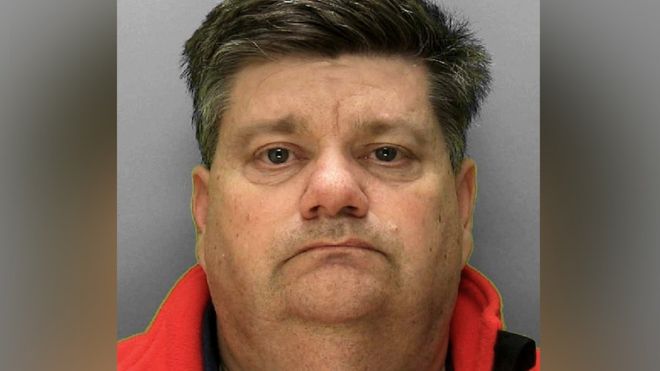The Metropolitan Police has been forced to revisit its policy of automatically ‘believing victims’ and criticised for not having learned lessons from its disastrous investigation into VIP paedophile ring.
A new report by Her Majesty’s Inspectorate of Constabulary and Fire & Rescue Services said that the failings of Operation Midland were ‘partly attributable’ to investigation officers’ belief in a single witness known at the time as ‘Nick’ but who was subsequently revealed to be the fantasist Carl Beech sentenced to 18 years last July. ‘The matter of whether the police needed – and still need – to believe people reporting crimes has caused confusion,’said the inspectorate.
The watchdog recognised the reputational damage to the police of the Operation Midland fiasco which ‘raised questions about the Met’s competence to investigate such cases’. ‘More generally, the presumption of innocence “until proven guilty” is one that British society holds particularly dear,’ it continued. ‘If the police’s behaviour can be perceived as running counter to that presumption, as it could in these operations, public trust and confidence in policing may be corroded.’
‘The Henriques report made uncomfortable reading for the Met and the force has been slow to learn the lessons,’commented HM Inspector of Constabulary Matt Parr. The watchdog’s recommendations call for changes to training material, policies and guidance ‘so that the lessons spelt out in the Henriques report become part of the police’s ‘corporate memory’’.
‘We were also asked to look at the concept of “belief” which was so controversial in the Operation Midland case. We found that most officers understand what’s expected of them – that they record the crime allegation then investigate it impartially – but a small minority don’t,’ Parr added.
The report concluded as was ‘so often the case when things involving the police go wrong’, not all blame rested with the police. It continued: ‘In this instance, some of it rests very firmly on the shoulders of certain media outlets and the people who publicised the false complaints. When repeating the words used by a complainant, former MP Tom Watson described the late Lord Brittan as being “as close to evil as any human being could be”.’
The report highlights the ‘life-changing’ damage to those falsely accused. ‘Their fear of a miscarriage of justice was very real indeed,’ it said. ‘For anyone who has the misfortune to find themselves in such a position in future, there may be the most profound upset, stress, trauma and a sense of injustice. It may be deeply felt, not just by the victim but their loved ones too.’ That trauma could be ‘amplified by any unfair treatment – perceived or real – at the hands of the police or the media’.
One source told the Daily Telegraph, that the report put Met commissioner Cressida Dick’s position in ‘serious jeopardy’. ‘This shows serious failings. The fact is between October 2016 when the Henriques report was submitted and late 2019, the Met did nothing to implement these recommendations.’
In 2016 the retired judge Sir Richard Henriques delivered his damning review of eight investigations which identified 43 failings in relation to Midland alone, not least the Metropolitan Police’s public statement that the allegations of the sole complainant ‘Nick’ were ‘credible and true’. ‘The policy of ‘believing victims’ strikes at the very core of the criminal justice process,’ Sir Richard wrote. ‘It has and will generate miscarriages of justice on a considerable scale.’
The watchdog records that the force was ‘under pressure because of failings in other high-profile cases and because of unacceptably low standards in the recording of sexual crime’. ‘Many reported crimes weren’t recorded properly,’ the report continues. ‘Beech’s allegations came at a time when the police were encouraging victims to come forward. And officers were anxious to avoid doing anything that would discourage them.’
The watchdog flags the Home Office’s counting rules for recorded crime which provide that, if a crime has been committed, the police should ‘accept the report and record it as such – unless there is credible evidence to the contrary immediately available’. ‘For the sole purpose of crime recording, this guides the police on what to do, not what to think,’ it says. The rules go on to state that ‘any investigation which follows is then taken forward with an open mind to establish the truth’.
The watchdog goes on to flag a 2015 rule change (after Beech had made most of his allegations) which provided that ‘the intention is that victims are believed’ and there should be ‘a presumption that the victim should be believed’.
‘Between recording crime and investigating crime, there is a profound difference in the degree of belief the police should attach to a complainant’s version of events. This should be clear to all frontline officers. However, we found that while most MPS officers had a good understanding of their obligations around believing victims, a small minority didn’t.’
Her Majesty’s Inspectorate of Constabulary and Fire & Rescue Services
This distinction was ‘not universally understood’, the inspectorate found. To this end, the Met has now reformulated its position to be absolutely clear (‘We will believe a victim such that we record the crime allegation. From that point we will investigate impartially, and with an open mind to establish the facts.’).







